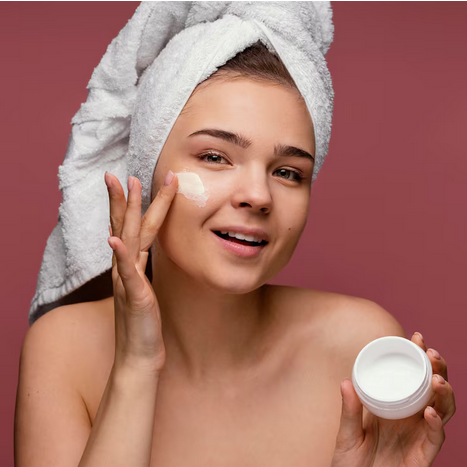Acne is a common skin condition that affects individuals of all ages, from teenagers to adults. While it can be a frustrating and often embarrassing issue, there are many acne removal creams available on the market that can help address this concern. In this comprehensive guide, we will explore the different types of acne removal cream, their key ingredients, and how to choose the best one for your specific needs.
Understanding Acne Removal Creams
Acne removal creams are topical treatments designed to target and address the various underlying causes of acne. These creams can help unclog pores, reduce inflammation, and promote the healing of existing blemishes. By using the right acne removal cream, individuals can effectively manage their acne and achieve clearer, healthier-looking skin.
Types of Acne Removal Creams
When it comes to acne removal creams, there are several different types to consider, each with its own unique set of benefits and targeted approach. Let's explore the most common types:
Salicylic Acid Creams
Salicylic acid is a popular and widely used ingredient in acne removal creams. This beta-hydroxy acid helps to unclog pores by breaking down the buildup of dead skin cells and excess oil. Salicylic acid creams are effective in treating blackheads, whiteheads, and inflammatory acne, making them a versatile choice for many skin types.
Benzoyl Peroxide Creams
Benzoyl peroxide is another commonly used ingredient in acne removal creams. It works by killing the bacteria that can contribute to the development of acne. Benzoyl peroxide creams are particularly effective in treating inflammatory acne, such as pimples and cystic acne. However, they can also be drying, so it's important to use them with caution and moisturize the skin accordingly.
Retinoid Creams
Retinoids, such as adapalene and tretinoin, are derivatives of vitamin A that can be found in some acne removal creams. These ingredients help to unclog pores, reduce inflammation, and promote cell turnover, leading to a smoother and clearer complexion. Retinoid creams can be more potent and may require a gradual introduction to the skin to avoid excessive dryness or irritation.
Sulfur Creams
Sulfur is a natural ingredient that has been used for centuries to treat acne. Sulfur creams work by drying out and exfoliating the skin, helping to reduce the appearance of blemishes. They are particularly effective in treating blackheads, whiteheads, and mild to moderate acne.
Combination Creams
Some acne removal creams contain a blend of multiple active ingredients, such as salicylic acid and benzoyl peroxide, or salicylic acid and retinoids. These combination creams can provide a more comprehensive approach to addressing different types of acne, targeting various underlying causes simultaneously.
Key Ingredients to Look For
When selecting an acne removal cream, it's important to consider the active ingredients and how they might work for your specific skin type and needs. Here are some of the key ingredients to look for:
- Salicylic Acid: Helps unclog pores and reduce inflammation.
- Benzoyl Peroxide: Kills acne-causing bacteria and reduces inflammation.
- Retinoids (Adapalene, Tretinoin): Promote cell turnover and unclog pores.
- Sulfur: Dries out and exfoliates the skin, reducing the appearance of blemishes.
- Niacinamide: Helps to reduce inflammation and redness.
- Tea Tree Oil: Possesses natural antibacterial and anti-inflammatory properties.
- Azelaic Acid: Helps to unclog pores and reduce inflammation.
It's important to note that while these ingredients can be effective, they may also cause dryness, irritation, or sensitivity in some individuals. Always perform a patch test before using a new acne removal cream and start with a lower concentration to assess your skin's tolerance.
Choosing the Best Acne Removal Cream for Your Needs
When selecting an acne removal cream, consider the following factors:
- Skin Type: Understand your skin type (dry, oily, combination, or sensitive) and choose a cream that is formulated for your specific needs.
- Acne Severity: Assess the severity of your acne and choose a cream that targets your specific concerns, whether it's blackheads, whiteheads, or inflammatory acne.
- Ingredients: Review the active ingredients in the cream and ensure they align with your skin's needs and concerns.
- Skin Sensitivity: If you have sensitive skin, look for gentle, non-irritating formulas that contain soothing ingredients like aloe vera or chamomile.
- Usage Instructions: Follow the usage instructions carefully, as some acne removal creams may require a gradual introduction or specific application techniques to avoid excessive dryness or irritation.
It's also important to be patient and consistent with the use of acne removal creams, as it may take several weeks or even months to see visible improvements in your skin.
Conclusion
Acne is a common skin condition that can be effectively managed with the right acne removal cream. By understanding the different types of acne removal creams and their key ingredients, you can find the best one for your specific needs and achieve clearer, healthier-looking skin. Remember to always patch test new products, follow usage instructions carefully, and be patient as your skin adjusts to the treatment. With the right acne removal cream and a consistent skincare routine, you can take control of your acne and feel confident in your own skin.





Comments